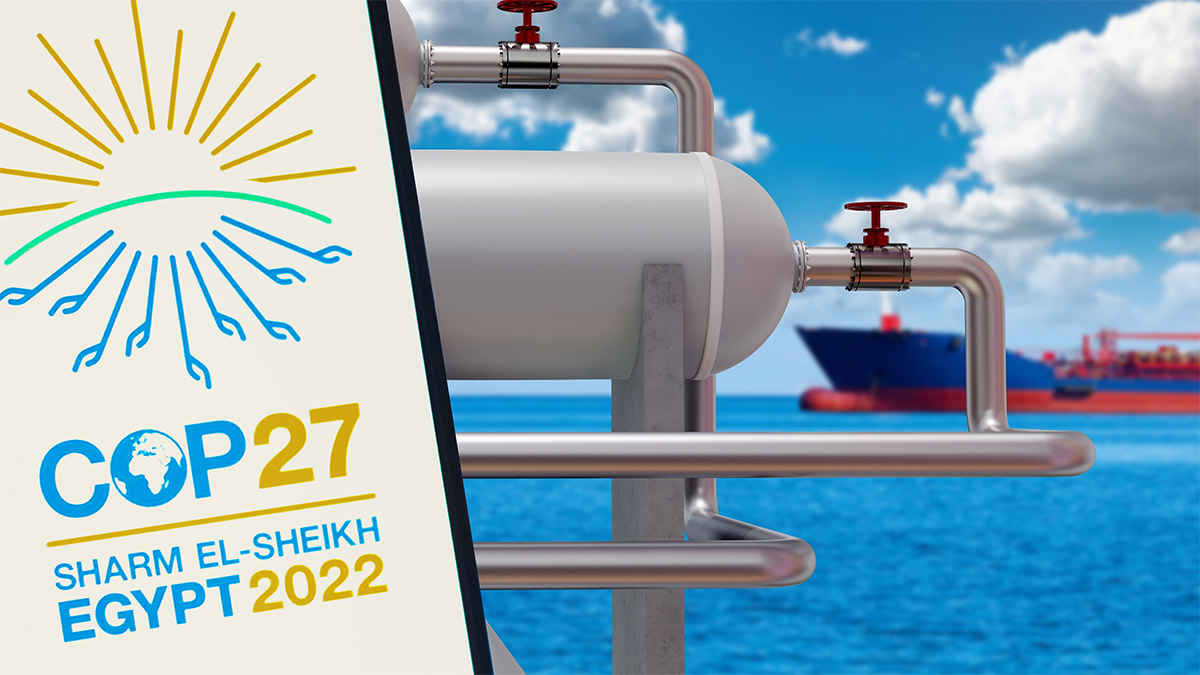COP27 Side Event: Producing future marine fuels - Opportunities for scaling up renewable energy production in developing countries

International shipping handles over 80% of global trade volume while accounting for about 3% of global CO2 emissions. Decarbonizing the sector implies challenges, but also opportunities for developing countries, who need to align GHG emission reductions in maritime transport with development goals.
Transition pathways show that a large part of shipping's decarbonization will result from the use of sustainable zero-carbon marine fuels, which are not yet produced and available at scale. The production of renewable marine fuels is at its nascent stage and needs to be rapidly scaled up in order to respond to the energy demand from the shipping industry. This new market generates opportunities for producers of renewable marine fuels including in developing countries.
Transitioning to zero-carbon shipping should occur in tandem with sustainable and equitable socioeconomic development. This means maximizing opportunities (e.g., green fuel production and improved efficiency of trade logistics) and minimizing unintended consequences (e.g., increased transport costs or any loss in connectivity) for developing countries.
It also means addressing the different national circumstances. In this regard, developing countries need equitable access to opportunities presented by the decarbonization of global shipping, including potentially benefitting from carbon revenues collected under a future IMO mid-term measure.
Following up from the successful IMO/UNCTAD event at COP26 on seizing opportunities for developing countries in providing zero-carbon fuels to international shipping and recent studies from IRENA on shipping decarbonization, this event will review the progress made since Glasgow and aim at identifying concrete collaboration opportunities between the shipping sector and renewable energy production, as well as ports with a special focus made on developing countries.
Panellists:
- High-Level Segment
- Kitack Lim, Secretary General, International Maritime Organization
- Rebeca Grynspan, Secretary-General, UNCTAD
- Nicolas Peltier, Global Director for Transport, World Bank Group
- Francesco La Camera, Director General, International Renewable Energy Agency (IRENA)
- Diego Pardow Lorenzo, Minister of Energy, Chile
- Panel
- Lynn Loo, CEO, Global Centre for Maritime Decarbonisation (GCMD), Singapore
- Nawal Yousif Alhanaee, Director of the Future Energy Department, United Arab Emirates
- James Mnyupe, Presidential economic adviser, Namibia
- José Firmo, CEO, Port of Açu, Brazil
- Marina Mattar, Director of Corporate Affairs, Unigel, Brazil (tbc)
- Reda Ahmed Ismail, Head of the Maritime Transport Sector, Egypt
- Guy Platten, Secretary-General, International Chamber of Shipping (ICS)
Issues to be addressed:
- Setting the stage: Future fuel needs and challenges for developing countries.
- Deploying future fuels: R&D and innovation needs.
- Investment needs, renewable energy production and distribution, port infrastructure.
- Partnerships, multi-stakeholder synergies.


